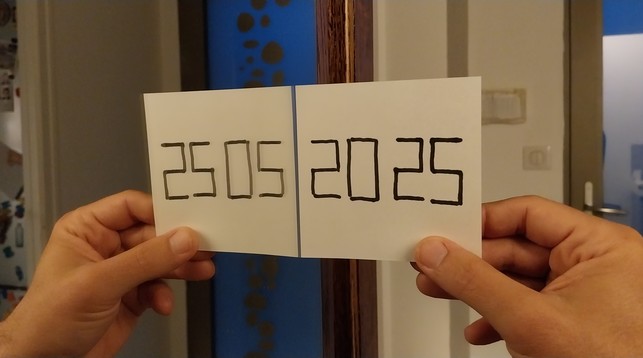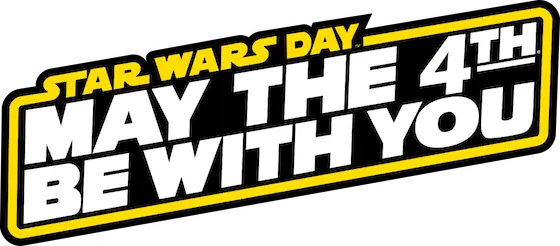Tuesday, 27. May 2025 Week 22
Here comes a handy utility: timeout.
As the name suggests, this command adds a timeout to other commands.
You specify the time limit you want to wait for a command and if that time passes,
timeout sends a signal to terminate it and exits with non-zero.
By default, timeout sends SIGTERM,
but you can change it with the --signal flag, e.g. timeout --signal=SIGKILL 1s foo.
For example, timeout 1s sleep 5 will send the SIGTERM signal to sleep
after 1 second.
(via)
Sunday, 25. May 2025 Week 21
After a bit more than 13 years I now removed Disqus from the blog.
Over these years, it only contributed 36 comments.
Most of them around a single post that made it onto the frontpage of Hacker News and Reddit.
I'll extract these comments from the export file of Disqus.
Then backfill them as static entries to the corresponding posts so they are preserved.
In the future I might add another way to comment/contribute directly on the blog.
For now, please use the communication channels listed on the About page.

(via)
Sunday, 18. May 2025 Week 20
This year, I missed the CSS Naked Day.
I very much like the idea of ensuring my blog is also readable without CSS.
Thus to make sure I'll not miss it next year, I've added the following snippet into my nginx config:
set $csp_style "'unsafe-inline' blog.x-way.org https://*.disquscdn.com https://gist.x-way.org/assets/";
if ( $time_iso8601 ~* ^20[0-9][0-9]-0?4-0?9T.*$ ) {
set $csp_style "'none'";
}
include /etc/nginx/conf_includes/x-way.org_security_headers;
It's using a very basic mechanism to ensure no CSS is shown on April 9 next year (or any other year)
First it checks if the date is April 9, and if yes it sets the variable for the style-src Content-Security-Policy header to 'none'.
Which forbids the browser to load any CSS when rendering my blog.
Now let's see how it looks next April 9th ☺️
Tuesday, 13. May 2025 Week 20
Being only an occasional coffee drinker, I lack any coffee making machinery at home. Not even some instant-coffee.
Thus this text is going to be less extensive than the inspiration post from Mike.
I have my coffee usually outside. Sometimes a cup in the office at work (when not working from home).
And quite often in one of the nice cafes in Zurich.
This afternoon I had a very yummy Flat White made from «UBA purple» beans at MAME 😋
Sunday, 11. May 2025 Week 19
In the Passkeys for Normal People article, Troy Hunt explains in simple terms how Passkeys work.
The article covers also what type of attack they prevent against (using Troy Hunt's recent falling for phishing experience) and how to setup Passkeys for common services.
At the end it briefly touches on using hardware U2F keys as well 🔐
Added some subtle links to the next and previous posts.
Turns out this is a built-in feature of Jekyll, which I never thought about using so far :-)
Here's the snippet which I just added to my custom post layout template:
<footer class="navfooter">
<nav>
{%- if page.next.url %}
<a rel="next" href="{{ site.url }}{{ page.next.url }}" title="{{ page.next.title | strip_html | escape_once }}">←</a>
{% endif -%}
{%- if page.previous.url %}
<a rel="prev" href="{{ site.url }}{{ page.previous.url }}" title="{{ page.previous.title | strip_html | escape_once }}">→</a>
{% endif -%}
</nav>
</footer>
(Only thing left now, is to tame the ugly Disqus comments section so these links become more visible…)
Saturday, 10. May 2025 Week 19
The Yeah, I Made It Lilac post inspired me to try to do something similar here.
I was wondering how complicated a post-specific style-sheet would be.
Turns out it can be quite simple.
First I changed my current style-sheet to use custom properties to define the colors in the :root pseudo-class.
This allows to make simple modifications without having to re-define a style-sheet from scratch.
Basically it is enough to re-define some of the custom properties with new colors, and everything else inherits them.
I already had some templating logic in place allowing to inject custom stylesheet fragments (eg. for the About and Statistics pages).
And a positive surprise, the logic behaves as desired when used for blog posts as well.
The custom stylesheet is injected when the page of the post is loaded, but is not injected when the post is shown as part of a collection (home page, archives, categories etc.).
Thus limiting the change to exactly the page of the post, and not messing with the style-sheet of other pages.
So in the end the lilac.css file which is injected for this post is quite simple:
:root {
--border-color-3: #6952a7;
--border-color-2: #a076c6;
--border-color: #ddabe2;
--pre-bg-color: #f7f7f9;
}
Sunday, 4. May 2025 Week 18
You’re in a rush and you need to grab a bottle of wine for a special occasion. You’ve got $40 and no preference for red or white, but you like wines with animal labels. Which wine are you buying?
We used ChatGPT Vision to identify animals on close to 1,500 wine labels to see if we could predict the price and quality of a bottle based on the animal on the label.
The Pour-Igin of Species by The Pudding.
TL;DR: New Zealand wines provide good quality for reasonable price. Cats are high quality.
(via)


